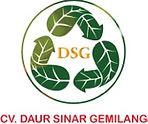
Plastic Recovery: Land & Sea
PRLS is a comprehensive framework.
We integrate islands, coastal communities, and waste collection, processing and recycling

Why
Most of the plastic waste entering the oceans is generated within 50 km of the coastline.
Communities on islands and in remote coastal areas require a waste collection and recycling infrastructure to stop plastic pollution. But waste collection in these areas is not possible with land-based waste collection infrastructure alone: an integration of land & sea based plastic waste recovery infrastructure is needed.
How
A team of global thought leaders and experts on circular economy, plastics, collection and recycling technologies, maritime engineering, marine biology, social change, and community engagement.
We set up PRLS to co-create a land & sea based waste recovery infrastructure with our public and private partners. We support local entrepreneurs and clean-up initiatives to create market pull for recycled plastic and circular feedstock from island states.
Current focus of our operations is in North Sulawesi, Indonesia, in the heart of the Coral Triangle.
Check out our annual reports:
Core Team

Jens Hamprecht
is a Co-Founder and Managing Director of PRLS. He has over two decades of experience in co-creating circular value chains in the global plastics industry. He is passionate to bring people and skills together to find solutions for ocean plastic waste.

William McDonough
is a Co-Founder of PRLS and Chairman of its Advisory Board. He is a globally recognized leader in sustainable development who co-authored Cradle to Cradle: Remaking the Way We Make Things (2002), widely recognized as a seminal text of the circular economy design movement.

Miriam Weber
has a PhD in marine biology and is the Director of HYDRA Marine Sciences GmbH. She and her team have been studying the fate of plastics in the oceans since 2009, providing consultancy and solutions for industry, NGOs and government agencies. Her field experience covers waters worldwide with focus on the Mediterranean Sea and tropical Australasia.

Christian Lott
is a marine ecologist and Co-Director of HDYRA Marine Sciences GmbH. He has over 30 years of experience in leading field projects worldwide. He had been running a marine field station since 1995 where he developed research programs, scientific outreach and environmental education on all levels, together with Miriam.

Anna Clerici
has lived in Indonesia for several years, managing one of the leading resorts in North Sulawesi. She has forged relationships with key partners in the region. Passionate about sustainability, she also has great skills in organizing and coordinating activities on site and in collaborating with local stakeholders in improving waste management. Anna leads the operations of PRLS in Asia.











